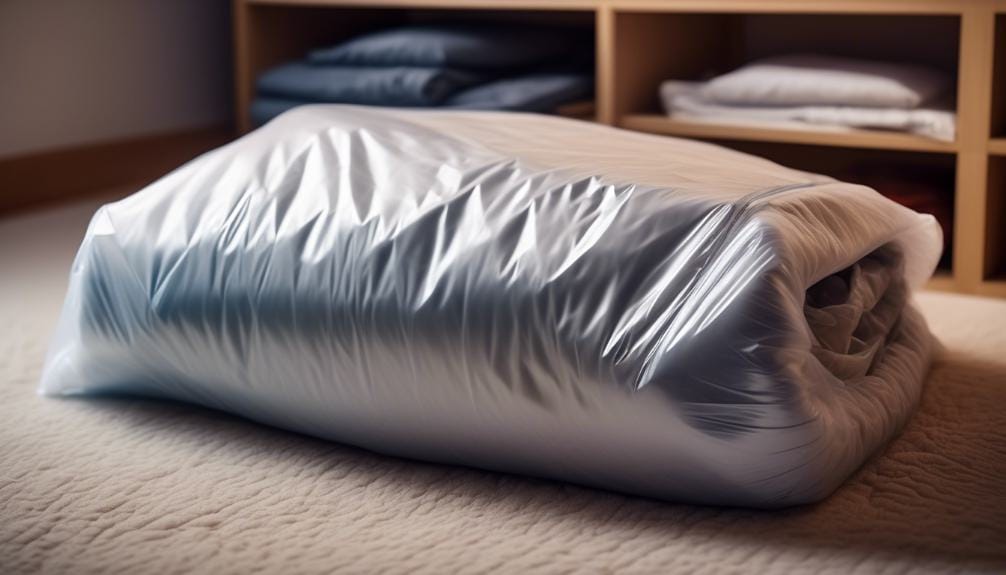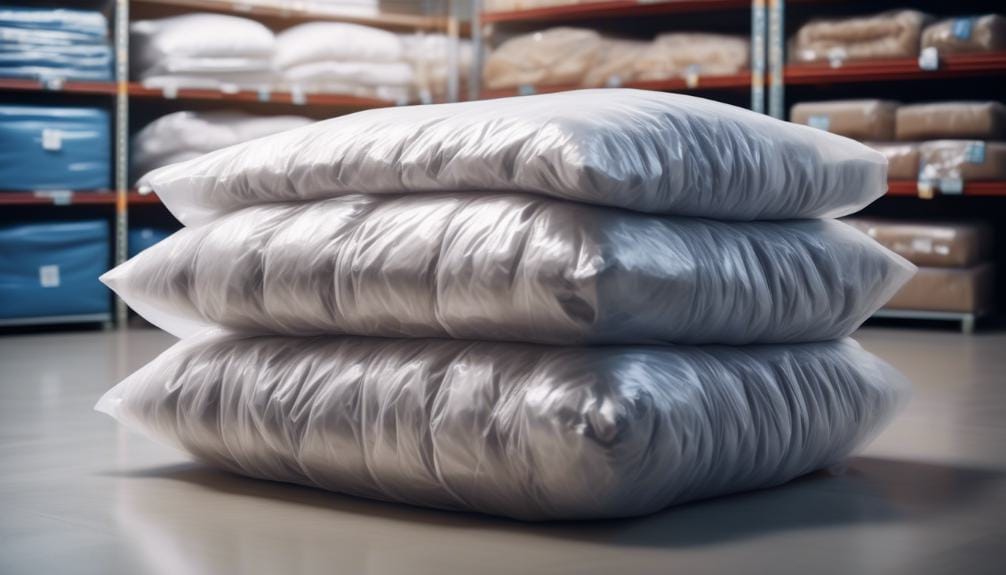How to Store Duvet: Tips for Proper Storage Solutions
When it comes to storing your duvet, proper care and attention are key. Knowing how to store your duvet correctly not only keeps it in good condition but also helps to make the most of your storage space. From ensuring it’s clean and ready for storage to utilizing the right storage solutions, there are several important factors to consider.
Whether you’re dealing with a down duvet, a synthetic one, or something in between, understanding the best practices for storage is essential for keeping your bedding in top shape. So, let’s dive into the essential tips for proper duvet storage and ensure that your bedding is always ready and waiting for you.
Key Takeaways
- Wash and thoroughly dry the duvet before storing to remove oils and dirt.
- Use breathable linen storage bags to prevent musty odors.
- Store bedding in a cool and dry environment to maintain optimal condition.
- Different duvet types require different storage solutions, such as using cotton bags for down comforters and vacuum-seal bags for synthetic comforters.
Properly Cleaning the Duvet

When cleaning your duvet, it’s important to wash and thoroughly dry it to remove oils and dirt, ensuring it stays fresh and clean during storage. Follow the care label instructions and use a mild detergent.
For down or feather-filled duvets, it’s crucial to ensure they’re completely dry to prevent mold and mildew. After washing, air-dry the duvet thoroughly before storing it. Make sure it’s completely moisture-free to avoid any potential for mold growth. If you’re using a dryer, use low heat and take the duvet out periodically to fluff and redistribute the filling.
Once dry, store the duvet in a breathable linen storage bag to prevent any musty odors from developing. Properly cleaning and thoroughly drying your duvet is essential for maintaining its quality during storage.
Optimal Storage Conditions

Properly cleaning and thoroughly drying your duvet ensures its quality during storage, and now, to maintain that quality, it’s crucial to store your bedding in optimal conditions. When storing your duvet, consider these optimal conditions:
- Store bedding in a cool and dry environment to prevent mold and mildew growth.
- Avoid storing bedding in sheds, attics, or garages due to potential moisture, mice, and bug damage.
- Provide ample airflow to prevent mold, mildew, and musty smells in storage areas.
- Utilize cotton storage bags to protect bedding and provide breathability.
- Consider using vacuum-seal storage bags for synthetic or down alternative comforters, leaving some air to prevent full compression.
Using Storage Bags

Consider using cotton storage bags to protect your bedding and maintain breathability when storing your duvet. Cotton bags are ideal for keeping out dust and allowing air to circulate, which helps prevent musty odors and mildew.
If you prefer vacuum storage bags, be cautious with delicate or bulky bedding to avoid damaging the fibers. However, avoid using plastic bags, as they can trap moisture and lead to mold growth.
Before storing your duvet, ensure it’s completely dry to prevent mildew or odors. If using vacuum bags, leave some air inside to maintain the duvet’s loftiness.
Using storage bags not only protects your duvet but also saves space and keeps it in optimal condition for the next use.
Differentiating Between Duvet Types

To ensure the proper storage of your duvets, it’s essential to understand the different types of duvets available and the specific storage solutions that best suit each type. When it comes to differentiating between duvet types, keep in mind the following:
- Down comforters should be stored in large cotton storage bags to prevent compression and damage.
- Synthetic or down alternative comforters can be stored in vacuum-seal storage bags, ensuring they’re clean and dry before storage.
- Vacuum-seal bags aren’t recommended for down comforters, while vacuum-seal storage bags are suitable for cotton or polyester comforters.
- Consider using cotton storage bags to protect bedding under the bed, or vacuum storage bags with caution for certain types of bedding.
- Different duvet types require different storage solutions, such as using cotton bags for down comforters and vacuum-seal bags for synthetic or down alternative comforters.
Maximizing Space and Organization

Maximize the storage space for your duvets and bedding by utilizing hall closets for long-term linen storage and getting creative with storage solutions in small homes or apartments. Keep your blankets and sheets well-organized by using under-bed storage containers or vacuum-sealed bags to save space. Utilize the area under your bed to store bedding you don’t use often.
Consider renting a storage facility if you have limited space at home. Linen closets are a great storage spot for your duvets, sheets, and extra bedding. Use shelves and storage bins to keep everything organized. If you have a basement, use dehumidifiers to control moisture levels and keep your bedding in good condition.
Consider climate-controlled storage for long-term storage of delicate or antique bedding.
Frequently Asked Questions
What Is the Best Way to Store Duvets When Not in Use?
Store your duvet in a breathable cotton bag or on a closet shelf to maintain airflow and prevent damage. Avoid sheds, attics, or garages due to moisture, mice, and bugs. Vacuum-sealed bags work well for synthetic comforters.
How Do You Pack a Duvet for Storage?
To pack a duvet for storage, start by ensuring it’s clean and completely dry. Neatly fold it and store it in a cotton storage bag on a closet shelf to maintain its shape and protect it from dust.
What Is the Best Storage for Duvets?
For the best duvet storage, you should use cotton storage bags to protect against dust. Avoid plastic bags and choose vacuum storage bags for synthetic comforters. Store in a cool, dry place with good airflow.
How Do You Store Comforters Efficiently?
To store comforters efficiently, neatly fold and place them in a cotton storage bag on a closet shelf. Ensure proper air circulation to prevent mold and mildew. Avoid plastic bags to prevent moisture buildup.
Conclusion
Now that you know the proper way to store your duvet, you can keep it clean, protected, and organized for whenever you need it.
By following these tips, you can ensure that your duvet stays in great condition and is ready to use whenever you want to change up your bedding.
Proper storage will also help maximize space and keep your home organized.
